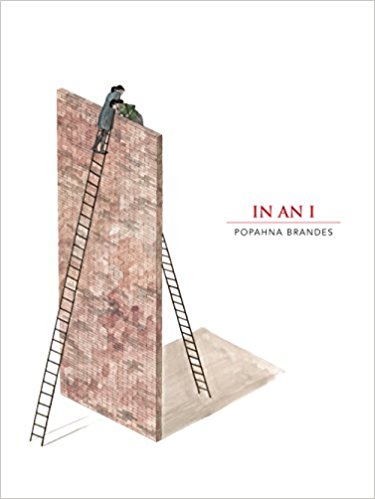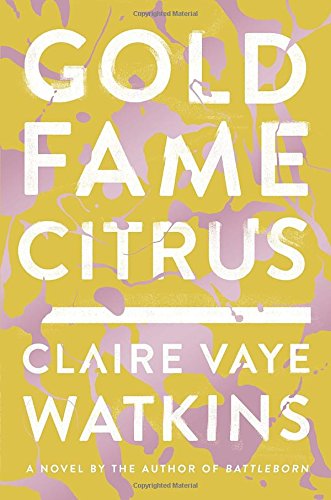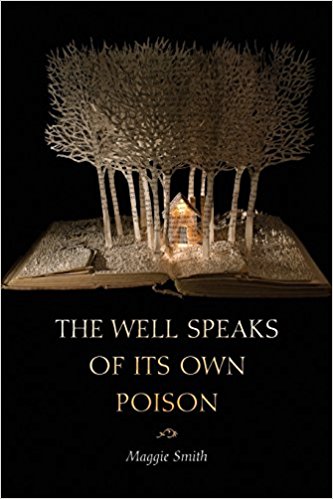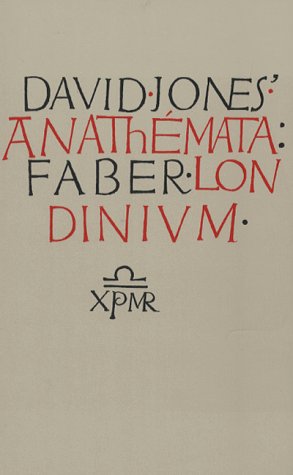In celebration of the release of Issue 12, October’s Friday Reads recommendations come from four of our Issue 12 contributors—poets, essayists, storytellers. As you might then expect, the breadth of their reading stretches wide: stories set in California on the brink of apocalypse or a bizarre state-sponsored research lab; poems rewoven eerily from dark fairy tales, or mixed from myth and history. If you hurry, you might just have time to read them all before Issue 12 hits your mailbox.
Recommended:
The Anathemata by David Jones, In an I by Popahna Brandes, Gold Fame Citrusby Claire Vaye Watkins, and The Well Speaks of Its Own Poison by Maggie Smith.
The Anathemata by David Jones
Recommended by Ralph Sneeden (Issue 12 essay contributor)
This long poem (1952) is an epic meditation, a journey, part overland trek, part voyage through the lush currents of the author’s “inheritances”—his being a cultural mutt of The West. Classical and Christian expression contend and ally ecstatically with British and Welsh diction, history, and mythos, “…unconscious of period.” The voice is especially enthralled by the overlapping textures of language, the evolution and coincidences of etymologies over thousands of years. Jones’s long “Preface” can stand independently as a manifesto on the nature of art and responsibilities of the artist (his admiration for Picasso is a lodestar), and his footnotes, too, are a blast, informative without intruding on the symphony. Like his treatment of a regiment’s psyche at the Somme (In Parenthesis, 1937), The Anathemata, too, is an assemblage of and “courtesy” to signsand objects (“devoted things”), a wry tangle of the sacred and profane…and its beauty is addictive. The poet instructs, “As take dilute essence of the best Ionic aximanders and shake in some well merlin’d extract of vergil.” A cocktail that Auden described as, “…very probably the finest poem written in English this century.”
 In an I by Popahna Brandes
In an I by Popahna Brandes
Recommended by Sean Bernard (Issue 12 fiction contributor)
An elliptical narrator spends a short period at a state-sponsored laboratory, The English Speaking Cultural Experimentation Society of the Lowlands (ESCESL), near a town that rests above caves carved from limestone quarries. The narrator is reporting her experiences with researchers engaged in experiments bizarre and mundane. A transcriber and a mathematician. An installation artist, a shipping route programmer. Songwriters and a self-described parasite, an economist and a grammarian. But the focal point of In an I is Ila, a portrayalist (“a portrait and a betrayal in one”); while at ESCESL, we hear Ila retell her halting history; later in the novel, after leaving the lab, the narrator and Ila strike off in search of a man who makes glass eyes. (This all mostly makes sense in the novel’s context.) In an I reads, welcomingly so, like a stylized less direct version of Sebald or even more sublimated Zink. Given its concept, satire would be reasonable to expect, yet while there is a quiet humor, the larger tone is more akin to a sort of awkward tragedy, a toeing of deeper waters of sorrow and regret. In an I is a strange and lovely book, a quite novel novel of meticulous abstraction and shrugged off depths.
 Gold Fame Citrus by Claire Vaye Watkins
Gold Fame Citrus by Claire Vaye Watkins
Recommended by Emily Chammah (Issue 12 fiction contributor)
Gold, fame, citrus: reasons why people migrated to California. In Claire Vaye Watkins’ first novel, no one goes to the Sunshine State “looking for something better” anymore. The novel is set in a time well beyond this era of wealth, glamour, and abundance. What remains are skeletons of the past, glittering artifacts that haunt those who have managed to survive. Characters lounge in empty swimming pools; dress in luxurious silks abandoned by the rich; sit on the beach, dehydrated, hypnotized by the waves—it is a world where the only dependable thing to drink is rationed Coke from the Red Cross, where tasteless blueberries cost eighty dollars, where the rest of the country has turned their backs on those who will soon be engulfed by the ever-expanding desert. And yet there is the promise of hope, of life. Luz and Ray have rescued—or possibly kidnapped—a baby, the only child either has seen in years. They head east, trying to save her.
Watkins’ prose is majestic. This is the kind of book you want to savor, to take your time with. Every description is unique, every detail ominous. I’ve recently been describing the book as post-apocalyptic, but it isn’t after a massive disaster as much as it is teetering on the edge of one.
 The Well Speaks of Its Own Poison by Maggie Smith
The Well Speaks of Its Own Poison by Maggie Smith
Recommended by Erica Dawson (Issue 12 poetry contributor)
I don’t usually like poems that revisit fairy tales. The originals have enough violence and innuendo to make me happy. When Maggie Smith revisits fairy tales, she creates something new. “Unclassified Stars,” in the book’s first section, is disturbingly badass. It’s the story of Gretel and Hansel. Not Hansel and Gretel: this is Gretel’s narrative. And, it’s not about her being lost in the woods, looking for home; it’s about discovering her own sexuality, her desires, boundaries, what it means to be open. In the poem, it appears as if Gretel and Hansel have an incestuous relationship. My first response? “That shit’s just wrong” because it didn’t leave a pleasant taste in my mouth, as fairy tales should. If I wanted real, I would have read something else.
The thing about that pleasant taste? It fades, leaving you with the smack of your own tongue. That’s what this book does to you. What makes my story real? The good? The bad? The body? Smith writes: “At the end of the story, where the moral should be, there are only two nudes reclining, naked and flushed beneath a great oak.” At the end of the book, I felt exposed with them. That’s what poetry should do. Smith makes it happen.




